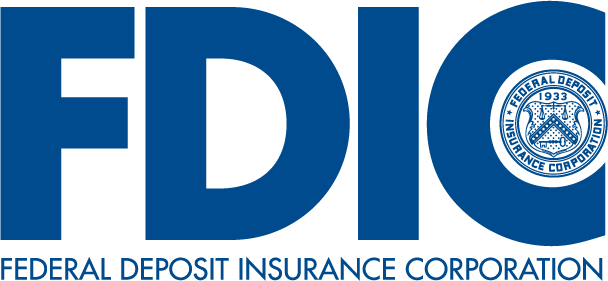Table of Contents
After reading this article, you will understand how deposit insurance works, agency or number to call to find out if your account is insured, Insurance Deposit Scheme and its impact on the economy.
Deposit insurance is a measure implemented in many countries to protect bank depositors, in full or in part, from losses caused by a bank’s inability to pay its debts when due. Deposit insurance systems are one component of a financial system safety net that promotes financial stability.
The Federal Deposit Insurance Corporation (FDIC) is an independent agency of the United States government that protects the funds depositors place in banks and savings associations.
FDIC deposit insurance covers the depositors of a failed FDIC-insured depository institution dollar-for-dollar, principal plus any interest accrued or due to the depositor, through the date of default, up to at least $250,000. For example, if a person had a CD account in her name alone with a principal balance of $195,000 and $3,000 in accrued interest, the full $198,000 would be insured, since principal plus interest did not exceed the $250,000 insurance limit for single ownership accounts.
For example, if a person had a CD account in her name alone with a principal balance of $195,000 and $3,000 in accrued interest, the full $198,000 would be insured, since principal plus interest did not exceed the $250,000 insurance limit for single ownership accounts.
How Deposit Insurance Works?
Deposit insurance institutions are for the most part government run or established, and may or may not be a part of a country’s central bank, while some are private entities with government backing or completely private entities. There are a number of countries with more than one deposit insurance system in operation, including Austria, Canada, Germany, Italy, and the United States.
What FDIC Does and Does Not Cover?
FDIC insurance covers all deposit accounts, including:
- Checking accounts
- Savings accounts
- Money market deposit accounts
- Certificates of deposit
FDIC insurance does not cover other financial products and services that banks may offer, such as stocks, bonds, mutual funds, life insurance policies, annuities or securities.
The standard insurance amount is $250,000 per depositor, per insured bank, for each account ownership category.
Is My Bank Insured by the FDIC?
Almost every banks carry FDIC insurance for their depositors. However, The FDIC doesn’t cover all types of accounts. Certain financial instruments, such as bonds, stocks, money market funds, U.S. Treasury securities (T-bills), annuities, safe deposit boxes, and insurance products are not insured by the FDIC.
Insurance Deposit Scheme in the United States
Deposit insurance scheme around the world varies widely in the amounts and types of coverage provided. According to the IADI, as of 31 January 2014, 113 countries have instituted some form of explicit deposit insurance up from 12 in 1974. Another 41 countries are considering the implementation of an explicit deposit insurance system.
The United States was the second country (after Czechoslovakia) to officially enact deposit insurance to protect depositors from losses by insolvent banks. In 1933 the Glass–Steagall Act established the Federal Deposit Insurance Corporation (FDIC) to insure deposits at commercial banks.
In 1970 Congress established a separate fund for credit unions, the National Credit Union Share Insurance Fund. The NCUSIF insures all federally chartered credit unions and many state-chartered credit unions (98% as of 2009). Some others are insured by the private guaranty corporation American Share Insurance (156 as of 2009). In 1978 foreign banks operating in the United States were required to hold the same level of reserves under the specifications of the International Banking Act.
In 1934, Congress created the Federal Savings and Loan Insurance Corporation to insure savings and loan deposits. In the 1980s, during the savings and loan crisis, the FSLIC became insolvent and was abolished; its responsibility was transferred to the FDIC.
Some financial institutions offer insurance in excess of FDIC or NCUA limits. For example, the Depositors Insurance Fund insures excess deposits at Massachusetts-chartered savings banks. American Share Insurance provides excess share insurance at participating credit unions.
Is Deposit Insurance Important?
Banks are allowed (and usually encouraged) to lend or invest most of the money deposited with them instead of safe-keeping the full amounts. If many of a bank’s borrowers fail to repay their loans when due, the bank’s creditors, including its depositors, risk loss. Because they rely on customer deposits that can be withdrawn on little or no notice, banks in financial trouble are prone to bank runs, where depositors seek to withdraw funds quickly ahead of a possible bank insolvency. Because banking institution failures have the potential to trigger a broad spectrum of harmful events, including economic recessions, policy makers maintain deposit insurance schemes to protect depositors and to give them comfort that their funds are not at risk.
Deposit insurance was formed to protect small unit banks in the United States when branching regulations existed. Banks were restricted by location thus did not reap the benefits coming from economies of scale, namely pooling and netting. To protect local banks in poorer states, the federal government created deposit insurance.
How can I get deposit insurance?
Depositors do not need to apply for FDIC insurance. Coverage is automatic whenever a deposit account is opened at an FDIC-insured bank. If you want your funds insured by the FDIC, simply make sure you are placing your funds in a deposit account at an FDIC-insured bank and that your deposit does not exceed the insurance limit for that ownership category.
How do I find out if a bank is FDIC-insured?
To determine if a bank is FDIC-insured, you can ask a bank representative, look for the FDIC sign at your bank, call the FDIC at 877-275-3342, or you can use the FDIC’s BankFind tool. BankFind allows you to access detailed information about all FDIC-insured institutions, including branch locations, the bank’s official website address, the current operating status of your bank, and the regulator to contact for additional information and assistance.
Can I have more than $250,000 of deposit insurance coverage at one FDIC-insured bank?
Yes. The FDIC insures deposits according to the ownership category in which the funds are insured and how the accounts are titled. The standard deposit insurance coverage limit is $250,000 per depositor, per FDIC-insured bank, per ownership category. Deposits held in different ownership categories are separately insured, up to at least $250,000, even if held at the same bank. For example, a revocable trust account (including living trusts and informal revocable trusts commonly referred to as payable on death (POD) accounts) with one owner naming three unique beneficiaries can be insured up to $750,000. See the Your Insured Deposit brochure for details.
Can I check to see if my accounts are fully covered?
Yes, you can get detailed information about your specific deposit insurance coverage by accessing the FDIC’s Electronic Deposit Insurance Estimator (EDIE) and entering information about your accounts. You can also call the FDIC at 1-877-ASK-FDIC (1-877-275-3342) and ask to speak to an FDIC deposit insurance specialist.
Economic Impact of Deposit Insurance
When a nation state has a deposit insurance scheme, foreign investors (aka non-resident bank depositors) are more likely to passively deposit larger amounts of money into the banks of that nation state.
Having a bank deposit insurance scheme (for all practical purposes) guarantees that a nation state will more likely have a higher rate of passive foreign investment (within the margin of insurable amount).
Passive foreign investment in a nation state’s finance system allows for more lending to be made when global finance system conditions constrict the amount of lendable money. There has been substantial research done over the years on the impact on foreign investment of bank deposit insurance schemes.
Deposit insurance enables banks to increase the money supply, without it underfunded banks might suffer a bank run which is prevented by the insurance. This encourages inflation.
If you have a suggestion, comment or question regarding deposit insurance, kindly comment below.



